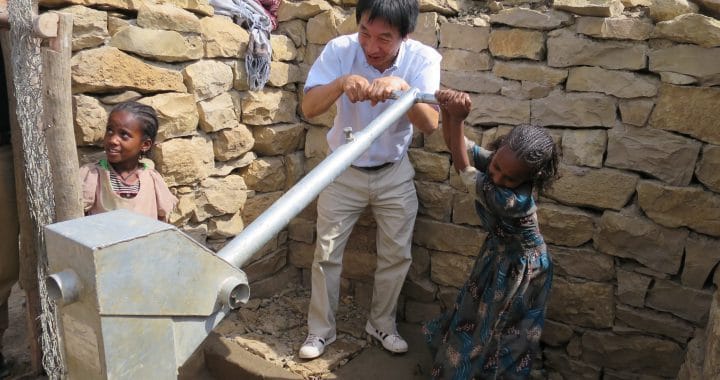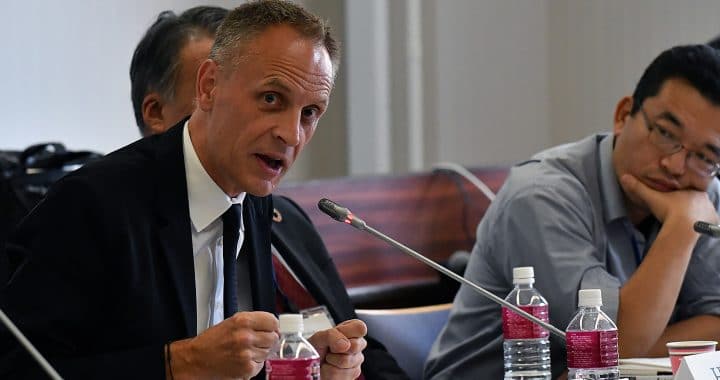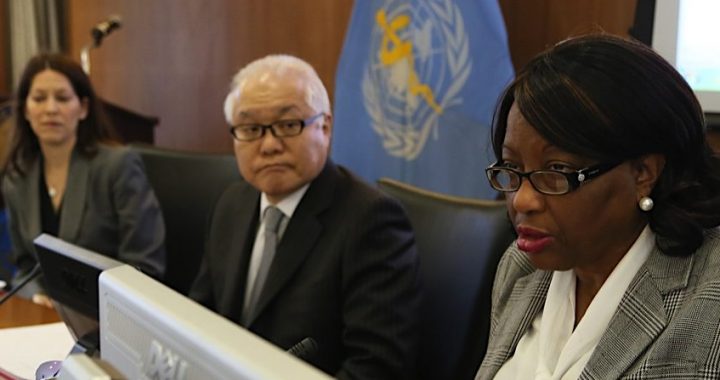G7 2016 Global Health Working Group

As host of the G7 Summit in 2016, Japan has the unique opportunity to set the tone for how global health priorities will be addressed in the summit agenda and help articulate how they will be formulated within the post-development framework. In order to capitalize on this opportunity and the growing momentum surrounding UHC as an increasingly important global priority, JCIE, in partnership with the University of Tokyo, has organized a Global Health Working Group (GHWG) to formulate policy proposals that will guide talks on global health.
Development Assistance for Health Special Commission

With just 10 more years until the Sustainable Development Goals’ (SDG) target year of 2030, there is a pressing need for Japan to increase the development impact of its global health assistance and make global health funding more strategic. This commission aims to reassess how to utilize Japan’s ODA in a more strategic manner to advance global health, adapt to structural shifts in the development field, and increase the efficacy and impact of its funding.
International Advisory Group on Global Health

In 2019 and 2020, Japan hosts a range of critical international meetings, from the G20 Summit to the 7th Tokyo International Conference on African Development (TICAD 7), and the Nutrition for Growth Summit (N4G). In order to help the Japanese government make strategic use of these events in advancing global health, in April 2018 the Japan Center for International Exchange (JCIE) convened a half-year consultative process in collaboration with five key Japanese government agencies.
JCIE Global Health Special Series

On December 16, JCIE and the government of Japan held a conference on universal health coverage (UHC) and the new development agenda. The following four blogs ran from December 12—also known as “UHC Day”—up until the start of the conference. In addition, a number of interviews here that were conducted with participants immediately following the conference.
Japan’s Response to the Spread of HIV/AIDS

In 2004, JCIE completed a survey report commissioned by the Open Society Institute (OSI) on Japan’s response to the spread of HIV/AIDS. This resulted in one of the first reports in English on how actors in the public and private sectors in Japan have been addressing the spread of the HIV/AIDS epidemic. The report was distributed at the international conference, Human Security Challenges of AIDS and Communicable Disease in Asia, held in Tokyo on March 22, 2004.
Global Health Press Tour Program

In 2013, the Abe administration launched its Strategy on Global Health Diplomacy to promote efforts to achieve universal healthcare. JCIE’s Global Health and Human Security outreach program is offering the media opportunities to cover the state of healthcare in developing countries and allows journalists to report on the effects that investments in healthcare have on a country’s development.
Health, Resilience, and the Added Value of the Human Security Approach

As part of the Global Health and Human Security Program, JCIE and the Pan American Health Organization/World Health Organization (PAHO/WHO) have collaborated on a project to analyze case studies of how the human security approach is being implemented on the ground and how it can contribute to broader goals of health, resilience, and development.
Human Security Approaches to HIV/AIDS in Asia and Africa

Starting in late 2005, a JCIE research team developed case studies of projects in Asia and Africa that take a human security approach to HIV/AIDS in order to better understand how these approaches work on the ground. Research was carried out in Tanzania, Thailand, South Africa, and Zimbabwe, and a workshop was held in Pretoria, South Africa on March 10, 2006, with aid workers and UN officials from around Africa.
Human Security in the United Nations

In 2003, JCIE was commissioned by Japan’s Ministry of Foreign Affairs to conduct an assessment of several projects funded by the Trust Fund for Human Security (TFHS), with a focus on how the human security concept has been incorporated and applied in TFHS-funded projects from the conception phase through the design and implementation processes.
Japan–World Bank Partnership Program on Universal Health Coverage

A Japan–World Bank Partnership Program on Universal Health Coverage (UHC) has been launched to examine lessons from Japan’s health system. The goal of the program, which focuses on financing and human resources, is to explore how these lessons can be applied to other countries that are trying to develop systems of universal health coverage.
